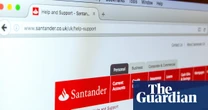Since becoming the presumptive Democratic nominee for President—and as of this month, the actual Democratic nominee for president—Vice President Kamala Harris has blasted past fundraising records. Within 24 hours of President Joe Biden’s endorsement in July, her campaign raised $81 million. By the end of that month, that number shot up to $200 million, bringing the campaign’s July fundraising total to $310 million. But this unprecedented outpouring of grassroots donations has also sparked a simultaneous uptick in donor fraud accusations—many of them flimsy—against ActBlue, the donation platform that underpins Democrats’ online fundraising apparatus.
Within the last month, Republicans in the House Administration Committee have expanded an ongoing investigation into ActBlue, citing “a wide array of sources” that have voiced concerns about its compliance with campaign finance law. Republican state officials, including the attorneys general of Virginia and South Carolina and the secretary of state of Wyoming, meanwhile, have launched investigations of their own in recent weeks.
These inquiries point to unspecified allegations of possible foreign money laundering or identity theft supposedly being carried out by bad actors on ActBlue. But experts in campaign finance law argue that many of the allegations being lobbed at ActBlue are, at best, based on a misunderstanding of how federal campaign contributions are reported and, at worst, a bad faith attempt by conservatives to cast doubt on a tool that has become essential to Democratic campaigns with just months to go before Election Day.
“These are not serious allegations, and I’m surprised that people who otherwise present themselves as serious are treating them as such,” said Brendan Fischer, deputy executive director of the watchdog group Documented and a lawyer specializing in campaign finance.
In a statement to Fast Company, an ActBlue spokesperson pointed to the organization’s security protocols and said, “Unfortunately, in 2024, it is all too commonplace to see attempts to spread disinformation from the far-right and our organization is prepared to address the bad actors.”
And yet, as was the case in 2020 when it was voting technology vendors under attack, these kinds of claims against foundational tools have a way of metastasizing and further corroding people’s already dwindling faith in the fairness and accuracy of U.S. elections.
Officials leading the investigations in Virginia, Wyoming, and the House Administration Committee didn’t respond to Fast Company’s requests for comment. A spokesperson for the South Carolina attorney general declined to discuss details of an ongoing investigation, including where the allegations of fraud originated.
FALSE CLAIMS, SPREAD ON X
At least some of the claims driving these investigations into ActBlue appear to have ties to a misleading social media post that went viral on X (formerly Twitter) in late July, two days after President Biden endorsed Harris. That post, from an account that claims to be associated with Northern Virginia politics and appears to exclusively broadcast conservative talking points, erroneously alleged that a donor in Virginia had made 22,619 donations to Democrats since 2019. The post called the finding “utter fraud (ID theft) via ActBlue.” But in a bizarre twist, federal campaign contribution records show that, in fact, that donor mentioned in the post has contributed almost exclusively to Republicans since 2019, including thousands of contributions made through WinRed, the Republican version of ActBlue.
And yet, the misleading post alleging the donations were routed through ActBlue made the rounds anyway. It got a particular boost when Charlie Kirk, the far-right personality and founder of the conservative youth group Turning Point USA, shared it with his own followers. In his post, Kirk accused ActBlue of enabling a “money-laundering operation” and urged state attorneys general to take action. Virginia’s attorney general, Jason Miyares, appears to have taken him up on that offer. Within days of Kirk’s post, Attorney General Miyares responded on X that his office was looking into the allegations. Just a few days after that, Miyares sent a formal letter to ActBlue demanding details on how the platform verifies donor information. “The integrity of our election is at stake,” Miyares wrote in the post.
ActBlue previously called the Virginia investigation a “scare tactic” aimed at undermining Democratic and progressive fundraising. “The promoters of this disinformation campaign have shown up at the homes of donors and harassed our staff in-person,” read a statement the platform posted to X. “This must stop.”
FLAWED “EVIDENCE”
This is not the first time ActBlue, which was founded in 2004 at the height of the progressive backlash to the Iraq War, has been the subject of dubious allegations. Last year, the far-right activist James O’Keefe published a video in which he showed up at donors’ homes in Maryland and asked them whether they’d made tens of thousands of dollars worth of donations to ActBlue. Many of the donors either seemed to be unfamiliar with what ActBlue was or denied making donations in such eye-popping sums. O’Keefe cast these responses as evidence of “massive money laundering.”
But Fischer and other watchdogs have called stunts like that misinformed at best. One core issue may be the way that ActBlue donations are publicly reported. Every time a donor contributes to a candidate through ActBlue, the Federal Elections Commission (FEC) records it twice: once as an ActBlue contribution and once as a contribution to the candidate. It only gets more complex from there. If a donor contributes to what’s known as a joint fundraising committee or any other kind of donation page that divides contributions between a range of candidates, that single contribution will get recorded as a donation to ActBlue, as well as several smaller donations, equal to the cut that each individual candidate received.
“A single donation might actually show up dozens or, in some instances, even hundreds of times on an FEC search,” Fischer says. But amateur sleuths often misinterpret this reporting quirk as evidence that a single donor has made far larger—and more frequent—contributions than they really have.
Another issue with asking donors about their contributions to ActBlue is that they simply may not even know such an entity exists. Part of what makes both ActBlue and WinRed so ubiquitous is that they blend into the background and integrate with candidates’ and political organizations’ own ads, websites, emails, text messages, and other forms of donor outreach. And over the past few campaign cycles, that outreach has reached a fever pitch, where potential donors are bombarded with a range of urgent subject lines and other incentives trying to convince them to fork over ever more money.
“Many fundraising solicitations could seem like your money is going to support a cause or might even be entering you into some kind of contest, when in reality, you’re contributing to a political committee,” Fischer says.
That’s part of the problem with another investigation being shopped around by the conservative group Fair Election Fund, which announced in May a $5 million fund to pay “whistleblowers” who come forward with evidence of election fraud earlier this year. That group has since reportedly said it identified 60,000 donors to the Biden-Harris campaign who didn’t recall making the donations. Fair Election Fund has not published its report or methodology publicly, though, making the allegations impossible to corroborate—or disprove. Fair Election Fund didn’t respond to Fast Company’s request for comment.
PARTISAN INVESTIGATIONS
The fact that only ActBlue—and not its conservative counterpart WinRed—is the subject of these investigations is a distressing sign, even for some on the right, who worry about the political nature of the inquiries. “There are a lot of right-wing people that seem to have blinders on on this whole topic,” says David Keating, president of the Institute for Free Speech, who Time once called the “man who invented the Super PAC.”
“If an attorney general is going to do an investigation,” says Keating, “I think they need to bend over backwards to make sure that they’re not doing it in a partisan way. If there’s an issue, and it may be affecting different platforms, with different ideological views, you don’t want to just be looking at one.” (A spokesperson for South Carolina’s attorney general said his office has not received any complaints regarding WinRed but would investigate it as well, if any allegations emerge.)
In 2021, in fact, a report by the New York Times showed that WinRed was opting Trump donors into recurring donations, often without their awareness. To opt out, donors had to uncheck a box that had been pre-checked for them, which many didn’t, leading to a spike in complaints by donors who felt duped, and prompting the Trump campaign to refund a whopping $121 million in contributions. The Biden campaign, by contrast, refunded just $21 million over the same time period, according to the Times’s report. In response, the Democratic attorneys general of New York, Minnesota, Connecticut, and Maryland all launched investigations of their own, but their inquiries were directed to both WinRed and ActBlue. WinRed sued the four states to stop their investigations, but that effort was blocked by the courts.
Minnesota’s investigation into WinRed remains ongoing. Connecticut, meanwhile, is continuing to investigate both companies. New York’s investigation is also ongoing, but a spokesperson did not comment further on which companies are being targeted. And Maryland declined to comment on the status of its investigation. WinRed also didn’t respond to Fast Company’s request for comment about whether it’s received any inquiries from the Republican officials now looking into ActBlue.
In addition to these newer investigations in Virginia and Wyoming, members of Congress have also recently homed in on concerns that ActBlue wasn’t verifying donors’ credit card information using the three-digit CVV codes on the back of credit cards. Last year, Republican senator Marco Rubio wrote to the FEC asking the agency to investigate. At the time, WinRed’s founder said his company did require the codes, unlike ActBlue. (The FEC also declined Fast Company’s request for comment.)
ActBlue’s spokesperson says the organization began expanding its CVV verification last year and now requires them for all new credit card donations. But just this month, Republican Congressman Bryan Steil, who chairs the House Administration Committee, sent a similar letter to the FEC asking that it initiate emergency rulemaking to require this feature on political donation platforms. Steil used the letter, however, to amplify other “widespread allegations of fraudulent donations being reported” against ActBlue.
It’s perfectly fair for lawmakers to want the FEC to clarify its rules on online donations, particularly as it pertains to the security of those donations, says Keating of the Institute for Free Speech. But using unproven allegations against ActBlue as a pretext to make that request, as Steil did, strikes Keating as an “unnecessary slap.”
SOWING DOUBT
At the center of all these allegations is the idea that malicious actors—perhaps even foreign ones—are using false identities to launder money into U.S. elections through vast numbers of small-dollar donations. For Fischer of the watchdog group Documented, that theory doesn’t pass the smell test, given all of the dark money groups that already allow for undisclosed political giving. “It would be insane to route small donations through donation-processing platforms in the names of hundreds or thousands of real people who would eventually figure it out,” he says.
Instead, Fischer views this surge in scrutiny surrounding ActBlue as just the latest front in a yearslong campaign to undermine faith in elections writ large. “This is about calling into question the integrity of our election system,” Fischer says, “and trying to throw any kind of crap at the wall and see what might stick.”









No comments